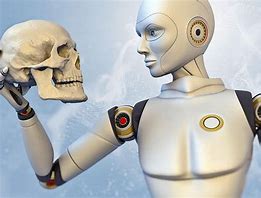Artificial Intelligence (AI) has the potential to bring about significant benefits, but it also poses certain dangers and challenges. Here are some of the key concerns associated with AI:
-
Job Displacement: AI and automation have the potential to replace certain jobs, particularly those that involve routine, repetitive tasks. This could lead to unemployment and economic disruption in certain sectors.
-
Bias and Fairness: AI systems are trained on data, and if the training data is biased, the AI models can perpetuate and even amplify those biases. This can lead to unfair and discriminatory outcomes, particularly in areas like hiring, lending, and law enforcement.
-
Privacy Concerns: AI systems often require large amounts of data to function effectively. The collection and analysis of personal data raise concerns about privacy infringement. Unauthorized access to sensitive information can have serious consequences.
-
Security Risks: AI systems can be vulnerable to cyberattacks. Adversarial attacks, where malicious actors manipulate input data to deceive the AI system, can lead to incorrect or unsafe outputs.
-
Lack of Accountability: As AI systems become more complex, understanding their decision-making processes can become challenging. Lack of transparency and accountability can be problematic, especially in critical applications like healthcare or finance.
-
Ethical Concerns: AI raises ethical dilemmas, such as the development of autonomous weapons, the potential for AI to be used in malicious ways, and the responsibility of AI developers and users to ensure ethical behavior.
-
Unintended Consequences: AI systems may behave in unexpected ways or make decisions that were not anticipated by their creators. This can lead to unintended consequences, especially in complex and dynamic environments.
-
Dependence on AI: As society becomes more reliant on AI systems, there is a risk of over-dependence. In critical areas such as healthcare or transportation, excessive reliance on AI without proper safeguards can be risky.
-
Regulatory and Legal Challenges: The rapid advancement of AI technology has outpaced the development of comprehensive regulatory frameworks. Establishing appropriate regulations to ensure the responsible and ethical use of AI is an ongoing challenge.
-
Job Evolution and Skills Gap: While AI may replace some jobs, it also creates new opportunities. However, there is a challenge in ensuring that the workforce is adequately equipped with the skills needed to adapt to the evolving job landscape.
Addressing these dangers requires a concerted effort from researchers, policymakers, and industry stakeholders to develop and implement responsible AI practices, ethical guidelines, and regulatory frameworks.






